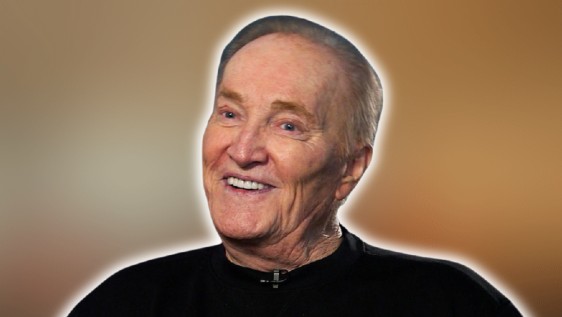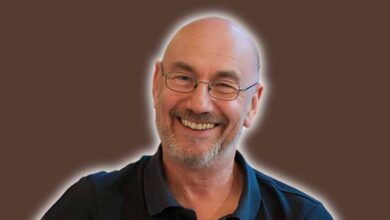Rikki Farr: A Legendary Journey Through Music, Festivals, and Audio Innovation

Rikki Farr, born Thomas “Rikki” Farr in Hove, Sussex, during the turbulence of the Second World War, grew up in a family that was already marked by fame. His father, Tommy Farr, was a celebrated Welsh heavyweight boxer who famously went fifteen rounds with Joe Louis at Yankee Stadium in 1937. This connection to a father known for his fighting spirit and determination laid a foundation of resilience that would later influence Rikki’s own life.
Raised in a post-war Britain still recovering from conflict and austerity, Rikki was surrounded by cultural change. The early 1950s and 1960s were a time when music, art, and popular culture were beginning to transform society. This was the environment in which he found his voice—not as a musician himself, but as someone who would shape the future of live performances, festivals, and audio technology.
Entering the Music Scene
In the early 1960s, London became a hub for a cultural explosion. Clubs across the city provided platforms for new bands and experimental sounds. Rikki Farr was at the heart of this movement, managing and promoting venues like the Marquee Club, Brave New World, and the Brighton Cellars. These clubs were not just gathering places for fans; they were breeding grounds for legends.
At this time, he helped launch the careers of groups that would later define entire eras of music. The Beatles—who were still known as the Silver Beatles—were among those given early opportunities thanks to Farr’s eye for talent. Alongside them came The Yardbirds, The Kinks, The Animals, and the early incarnations of Pink Floyd. Farr’s instincts for recognising potential ensured that these bands found stages and audiences to propel them to global fame.
The Isle of Wight Festivals
Perhaps Rikki Farr’s most iconic contribution to music history was his co-production of the Isle of Wight Festivals between 1968 and 1970. These festivals were not just concerts—they became cultural landmarks.
-
1968 saw the first festival, attracting around 10,000 people. Though modest in comparison to later years, it proved that there was an appetite for large-scale music gatherings in the UK.
-
1969 brought stars like Bob Dylan, The Who, The Moody Blues, and Joe Cocker. It cemented the festival’s reputation as a serious rival to Woodstock.
-
1970 was the pinnacle, with an estimated 650,000 people descending on the island. The line-up included Jimi Hendrix, Miles Davis, The Doors, Joni Mitchell, and The Who. It was one of the largest gatherings of people in music history.
The sheer scale of the 1970 festival led to changes in legislation, as authorities sought to restrict such enormous events. But by then, Rikki Farr and his team had already etched their names into music history. The Isle of Wight Festivals remain legendary, remembered as moments when music became a unifying force for an entire generation.
Building Live Production Empires
After the success of the festivals, Farr’s ambitions moved towards creating companies that could professionalise and expand the live music industry. In 1974, he founded Electrosound, which later became Electrotec, and International Tour Services (ITS). These companies quickly became leaders in staging and producing live events.
Under his leadership, they managed more than 4,700 live concerts across the globe. Pink Floyd, Led Zeppelin, Tom Petty, and Bob Marley were just some of the names associated with these productions. By the height of their success, Electrotec and ITS were generating revenues exceeding $70 million annually.
What made these companies stand out was not just the scale of their operations, but the attention to quality. Rikki Farr understood that for audiences to be truly immersed in a performance, sound and staging had to be perfect. This vision helped shape modern live concert standards.
Major Global Events
Farr’s expertise was not limited to rock concerts. He was instrumental in producing events of international importance. When Pope John Paul II visited Ireland in 1979, Farr’s team handled the audio production for a gathering of more than one million people. Similarly, in 1980, he organised Bob Marley’s performance in Harare at the celebration of Zimbabwe’s independence. These events demonstrated his ability to combine technical mastery with cultural sensitivity.
Another unexpected but massively successful project was the Mighty Morphin Power Rangers Show in the 1990s. This production became the highest-grossing children’s touring show, reaching audiences across 23 countries and selling out venues like Radio City Music Hall. It was proof of Farr’s versatility—he could handle everything from Hendrix to children’s entertainment.
Entrepreneur in Audio Innovation
Rikki Farr’s journey also took him into the world of audio technology. After selling Electrotec in the late 1980s, he founded Diamond Audio, specialising in high-performance car audio systems. The company quickly grew into a respected brand in the automotive sound industry.
Later, he created Audio Solutions, Inc. (ASI), which merged with AuraSound in 2007. With his leadership, ASI expanded its reach, supplying components to global computer brands like NEC, Packard Bell, Acer, and Gateway. During his tenure, revenues increased from $7 million to $76 million—a testament to his business acumen and ability to recognise market needs.
Though he eventually left ASI in 2012 due to creative differences, this did not slow him down. Farr returned to what he loved most: designing sound systems that could deliver pure, high-fidelity audio.
RIVA Audio and Audio Design Experts
In his later career, Rikki Farr founded RIVA Audio, under the umbrella of Audio Design Experts. His goal was to combine decades of live sound knowledge with cutting-edge technology to create products for everyday listeners. Unlike many consumer audio companies focused on branding, RIVA prioritised sound quality above all.
Their wireless speakers received acclaim for delivering rich, room-filling audio. Critics and customers alike praised the balance between design, portability, and sonic performance. For Farr, it was a return to the principles that had guided him since the 1960s: sound should be powerful, authentic, and immersive.
Legacy in Music and Technology
Rikki Farr’s legacy spans more than sixty years of cultural influence. He is remembered not only as a promoter who gave opportunities to legendary bands but also as a pioneer who professionalised live production. His ability to adapt—moving from concerts to festivals, from staging to technology, and from rock icons to children’s shows—demonstrates a rare blend of creativity and entrepreneurship.
Beyond the numbers and companies, his story reflects a deep passion for music and sound. He believed that music had the power to bring people together and that great sound could transform the experience of listening. Whether standing in front of a million people at a Papal mass or designing a speaker for a family living room, Farr pursued excellence.
Personal Reflections
Those who worked with him often describe Rikki Farr as a man with boundless energy, sharp instincts, and a deep love for the arts. He was unafraid of risks—booking controversial acts, organising massive gatherings, and investing in technologies before they were mainstream. This willingness to push boundaries is what made him stand out.
His career is also a reflection of the broader history of modern music. From the British Invasion to the birth of global festivals, from the rise of reggae to the digital age of audio, Farr was always present. He didn’t just witness history—he helped shape it.
Conclusion
The name Rikki Farr carries weight across multiple industries: music promotion, live event production, and audio technology. His life demonstrates how one person can influence both culture and technology by staying true to a vision. From launching the careers of The Beatles and Pink Floyd to creating audio systems admired worldwide, his contributions remain invaluable.



